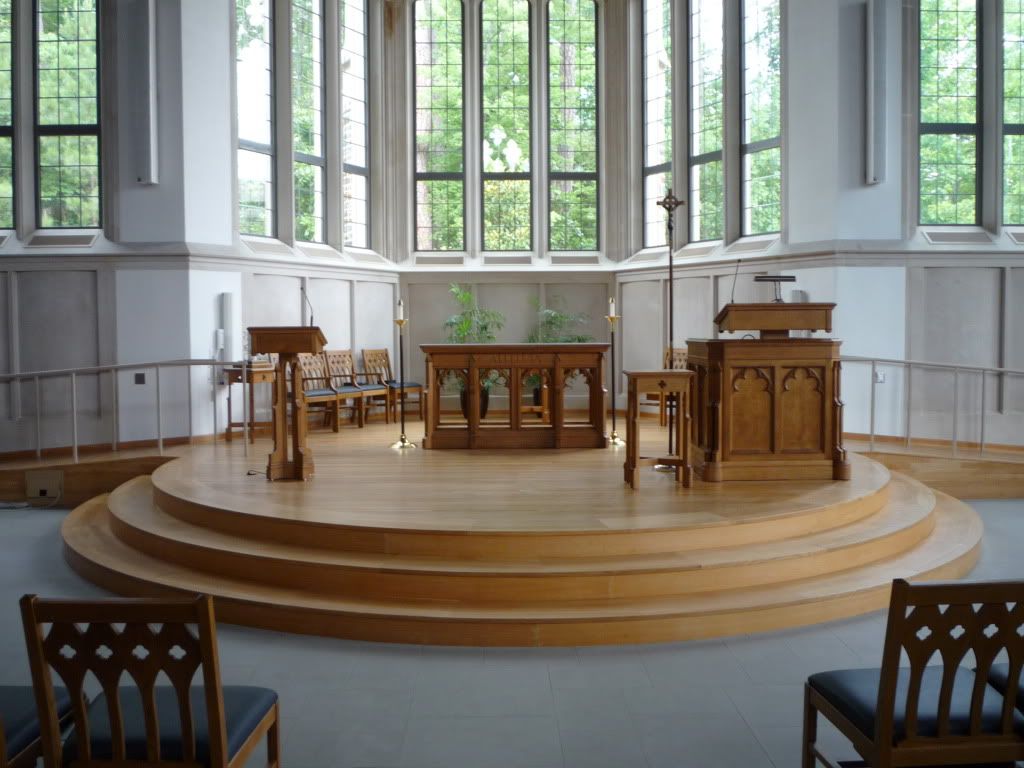My journey with Wesley’s worship life began in late 2006 when I was approached by Joe Davis, the Worship Chair at that time. Joe and I hadn’t met, so pretty much all he knew about me was I was “that new guy from Belmont that majored in bass.” As fate (God?) would have it, the band he played drums in had a bass-shaped hole, so he extended an invitation for me to join in the upcoming semester. I readily accepted, as I was still searching out my place not only at Wesley, but at Auburn as well.
From the spring of 2007 on, every other Sunday afternoon consisted of me arriving at Wesley around 5:00 pm, setting up and preparing to lead that night at 8:00. Shortly after I began playing bass in Joe’s band, the worship leader for the other band at Wesley decided to leave, thereby leaving another need. I auditioned and was selected to lead that band as well, so every single Sunday went about the same.
I’d be lying if I said that every single group I’ve played with here has been a rosy experience. In all honesty, that first band I’d ever actually led was miserable. There were personal conflicts, musical conflicts, and even theological conflicts. Not a great recipe for the worship life of your ministry. Through it all, however, God was hammering me like a piece of metal to form me into what He needed me to be. From that point on, I led worship at Wesley.
A friend and mentor asked me about my last experience on Monday morning. “What was it like last night, knowing it was your last time?” she asked. Bittersweet, I told her. It was refreshing, knowing I would finally have Sunday afternoons to enjoy, not having to set up equipment for practice or make copies of sheet music because the members of my band keep losing theirs, and being able to pass the torch I’ve held for probably too long to someone else. It was tough, though. This had been my home. At that point, she agreed, and added this stark realization:
“I mean, it’s kind of been your identity.”
My identity. Who I was. Nothing could’ve been truer. I’ve done a lot of things at Wesley. Almost all of those things have been tied to worship. Worship for me has been the way that I serve.
To leave that all behind has in a way left me without something to cling to.
We are called to sometimes leave those identities behind I suppose. To offer ourselves to God to be hammered and formed into the next tool for the Kingdom. To pick up our Cross and move to the next station, whereby God says to us, “Helluva job. Now let’s get to work.”
God has blessed me tremendously through worship. I’ve never pretended to be a good musician, singer, or worship leader. It’s been pretty horrible at times. Those times that have formed this identity for me, though, are the times that it’s been just that. Times when my mind would wander in the middle of a song, only to be Divinely corrected and centered by butchering a chord or forgetting the words. Times when I would get either frustrated with my partners in worship, or worse, apathetic. Times when I hear my recorded voice and cringe at the pitch-iness of it all.
For me, that’s what worship is. Bringing before God your brokenness, your troubles, fears, anxieties, vices and hurts and laying them down saying, “Holy are You.” We try to bring our best, knowing that it’s not and will never be good enough. Yet we still come, singing of the mercy of God, all the while not being completely sure if we’ll get it again…
…but we do.
We praise in our songs the glory and majesty of God, even though sometimes we wonder if it will still be available to us, even after all the awful stuff we’ve done…
…but it is.
We sing of loving one another, even though when we leave we’ll go back to our computers and newspapers and read of the suffering, oppressed, hurting and alienated and do nothing…and I mean nothing…about it, or even do things in opposition to them, then realize it and think, “Surely God cannot do anything with me now…”
…but He does.
Worship is pouring out our love to God and receiving His love in return. I’m undeservedly blessed to have been able to pour out and receive for almost four years.
So now as I trade my worship identity for another…

…oops I mean…

...I go forward in whatever God has for me next, proclaiming the mystery that is in us:
Christ has died, Christ has risen, Christ will come again. Thanks be to God.
Amen.






